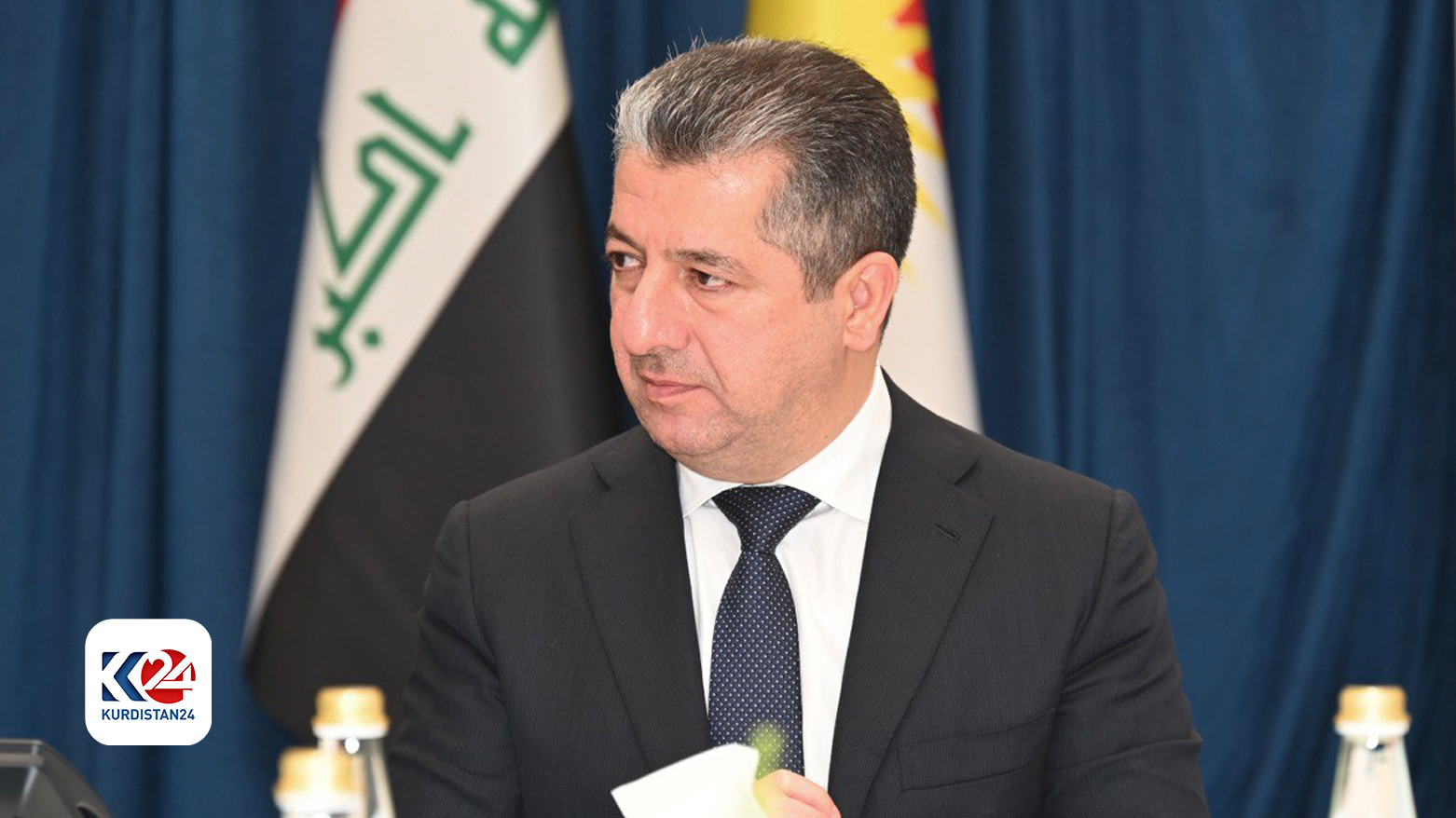PM Barzani: Kurdistan resistant to oppression, rejects possibility of Iraq’s return to tyranny

ERBIL (Kurdistan 24) – Marking the 54th anniversary of the March 11 Agreement struck between the Kurdish leadership and the former Iraqi regime, the Kurdistan Region Prime Minister Masrour Barzani released a statement on Monday and stated that the accord was historic proof of the nation’s resistance against tyranny and dictatorship.
“The revolution, resistance and sacrifices of the Kurdish people forced the Iraqi government to recognize some of the legitimate rights of the Kurdish people,” PM Barzani highlighted.
March 11 Agreement is agreed to be a milestone in Kurdistan’s political history. “In particular, it was an agreement to amend the provisional constitution”, as well as, “recognizing that Iraq consists of two main nations (Kurds and Arabs),” PM Barzani remarked.
The Agreement also constitutionally acknowledged the political and cultural rights of the Kurdish nation. “However, the Iraqi regime eventually withdrew from the agreement and resorted to war and oppression of the Kurdish people,” he added.
PM Barzani continues and says that as the result of the Iraqi regime’s decision to forcefully suppress the rightful demands of the Kurdish nation, Iraq was plunged into “great suffering and destruction” at great humanitarian cost.
PM Barzani underlined that the occasion of commemorating the March 11 Agreement is also an incredible opportunity to “emphasize the need and importance of protecting and respecting the constitutional rights of the Kurdish people and the constitutional structure of the Kurdistan Region.”
Today, 54 years since the March Agreement, is a powerful reminder of our gains and the price it has cost to secure them.
— Masrour Barzani (@masrourbarzani) March 11, 2024
We cannot be complacent now; we must continue to protect the hard-fought freedoms and rights of the people of the Kurdistan Region -mb. pic.twitter.com/goZXyXAUb2
"The Kurdish nation will never allow their rights to be violated, oppressed and Iraq to be returned to the era of dictatorship," Prime Minister Masrour Barzani stressed.
The March 11 Agreement, initially set to be fully implemented within four years, faced a setback when Iraqi officials withdrew their commitment. This withdrawal triggered the Second Iraqi-Kurdish War in 1974, plunging the region into armed conflict once again.
The repercussions of this conflict persist for the Kurdish people, who are yet to receive compensation. Despite the challenges, the Kurdistan Region remains steadfast in its commitment to defending constitutional rights and resolving outstanding issues.
The roots of the 1970 agreement lie in 11 years of intense conflict between the Kurdish Peshmerga, led by the legendary Mustafa Barzani, and the then-Iraqi regime. Notably, the agreement marked a pivotal moment as it was the first time the Iraqi regime officially recognized Kurdish political and cultural rights. This included the granting of administrative autonomy, the incorporation of Kurdish studies into the education curriculum, and the permission for Kurdish officials to participate in the Iraqi government.
March 11 holds a special significance for the Kurdistan Region, celebrated as a national holiday in honor of the historic occasion.
